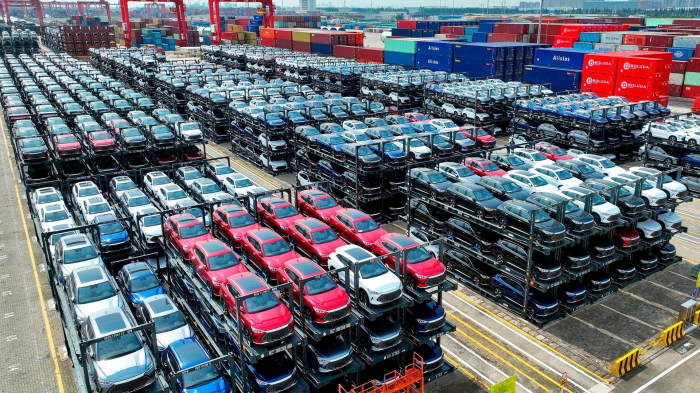The move to introduce tariffs aims to protect the European car industry from being undermined by what EU politicians believe are unfair Chinese-state subsidies on its own cars.
Charges of up to 45% are to be enforced on electric cars made in China for the next five years, but there have been concerns such a move could raise electric vehicle (EV) prices for buyers.
The decision, which split EU member states such as France and Germany, risks sparking a trade war between Brussels and Beijing, which has condemned the tariffs as protectionist.
China has been counting on high-tech products to help revive its flagging economy and the EU is the largest overseas market for the country's electric car industry.
Its domestic car industry has grown rapidly over the past two decades and its brands, such as BYD, have began moving into international markets, prompting fears from the likes of the EU that its own companies will be unable to compete with the cheaper prices.
The EU imposed import tariffs of varying levels on different Chinese manufacturers in the summer, but Friday's vote was to decide if they were implemented for the next five years.
The charges were calculated based on estimates of how much Chinese state aid each manufacturer has received following an EU investigation. The European Commission set individual duties on three major Chinese EV brands - SAIC, BYD and Geely.
EU members were divided on tariffs. Germany, whose car-manufacturing industry is heavily dependent on exports to China, was against them. Many EU members abstained in the vote.
German carmakers have been vocal in opposition. Volkswagen has said tariffs are "the wrong approach".
However, France, Greece, Italy and Poland were understood to be in favour of the import taxes. The tariffs proposal could only have been be blocked if a qualified majority of 15 members voted against it.
On Friday, SAIC - which owns the MG brand - said it would not change the price tags of its electric vehicles this year, regardless of the outcome of the vote.
Germany's top industry association, BDI, called on the European Union and China to continue trade talks over tariffs to avoid an "escalating trade conflict".
The European Commission, which held the vote, said the EU and China would "work hard to explore an alternative solution" to the import taxes to address what it called "injurious subsidisation" of Chinese electric vehicles.
AzVision.az
















































